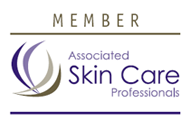Blog
April is Rosacea Awareness Month
Rosacea: What It Is & How to Help Manage It
by The Institute of Skin Science
Rosacea is one of the most common skin conditions and is also the most misdiagnosed in our industry. This skin condition can be classified by symptoms such as:
Frequent or constant flushing to the cheeks, nose or chin
Scaly or dry skin that resembles Eczema
Broken or distended capillaries
Texture thickness
Papules/pustules
Sensitivities to products and pressure
It is unknown what the cause of Rosacea is, but we do know that individuals who suffer from Rosacea have a larger quantity of Demodex mites than those who do not have Rosacea – up to 10x’s more! The demodex mites are found on the skin naturally and they let off bacteria as they move around.
Another contribution is the vascular endothelial growth factor called H Pylori, which is a signal protein produced by cells that stimulate the formation of new blood vessels. We believe these bacteria and the growth factor are what causes a flare up.
If your client does have Rosacea, it is important to note there is no known cure for Rosacea, but treatments can help this condition from progressing into higher stages and becoming worse. If you suspect your client has Rosacea, please refer them to a physician before beginning any type of treatment.
How do we care for Rosacea?
Remember the demodex mite bacteria that we mentioned before, which may be the cause of flare-ups? This bacteria also creates an enzyme called lipase. Luckily, we know that Glycolic Acid has the ability to destroy the lipase enzyme to mitigate keep flare-ups. Using a Glycolic cleanser, masque, or leave-on serum at home or in the treatment room is a must for any Rosacea client.
Another effective ingredient in the Rosacea arsenal is Horse Chestnut. This powerful ingredient promotes blood circulation in the capillaries which strengthens capillary walls to prevent broken or distended capillaries from forming. This will also help repair any capillaries that are already damaged from over flushing or exposure to inflammatory triggers, such as spicy food. Protecting the skin against inflammation is huge when dealing with Rosacea.
Written by The Institute of Skin Science



